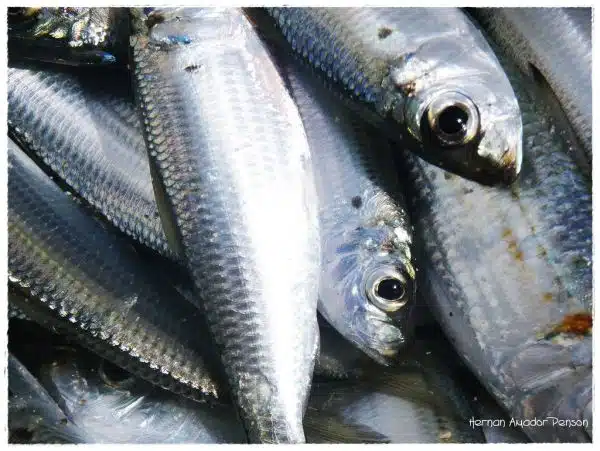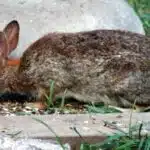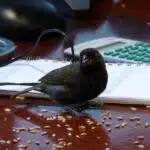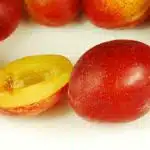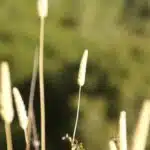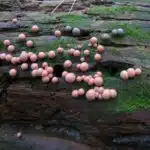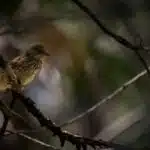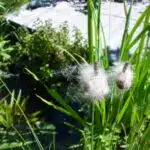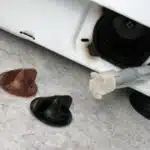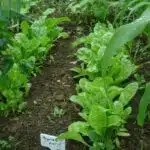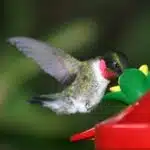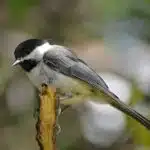Bird feeding is a popular hobby that brings joy and beauty to many people’s lives. However, improperly storing birdseed can lead to spoilage, attracting unwanted pests such as rodents and insects, and even pose health risks for the birds themselves. As a birdseed storage expert, it is my duty to provide information on how to keep birdseed fresh and safe through proper storage techniques.
The key to keeping birdseed fresh is minimizing exposure to moisture, heat, and air. When exposed to these elements, birdseed can quickly become rancid and moldy. Proper storage containers such as metal or plastic bins with tight-fitting lids can help prevent moisture from seeping in. Additionally, storing birdseed in a cool and dry location will help prevent spoilage. By following these simple tips, you can ensure that your feathered friends receive safe and nutritious food year-round.
The Importance Of Proper Birdseed Storage
How important is proper birdseed storage? This question may seem simple enough, but the answer is not as straightforward as one may think. Proper birdseed storage is crucial for maintaining the quality and safety of the food you provide for your feathered friends. The benefits of freshness are numerous, including increased nutritional value and better taste, while preventing contamination ensures that birds are not exposed to harmful bacteria or other dangerous substances.
Keeping birdseed fresh begins with understanding how it can become stale or spoiled over time. Exposure to air, moisture, heat, and sunlight can all contribute to degradation in quality and nutrient content. Properly storing birdseed in airtight containers that keep out moisture and light can help prevent this from happening. Additionally, keeping seed in a cool, dry place will help maintain freshness for longer periods of time.
Preventing contamination is equally important when it comes to storing birdseed. Birds are susceptible to a range of illnesses caused by exposure to harmful bacteria or fungi that can grow on improperly stored seed. This is why it’s essential to clean storage containers thoroughly before refilling them with fresh seed and avoid mixing old and new seed together. By taking these precautions, you can ensure that your birds are safe from harm while enjoying the benefits of fresh, high-quality food.
Understanding the dangers of improper storage is critical for ensuring the health and well-being of your avian friends. Let’s take a closer look at some of the risks associated with storing birdseed incorrectly and what steps you can take to mitigate them.
Understanding The Dangers Of Improper Storage
As a birdseed storage expert, it is important to understand the potential dangers of improper storage. Birdseed can become contaminated with various bacteria and fungi, which can be harmful to birds if ingested. Birds that consume contaminated seed may experience digestive issues, illness, or even death.
Common contaminants in birdseed storage include moisture, insects, and rodents. Moisture is a common issue in birdseed storage because it can lead to the growth of mold and mildew. Insects such as weevils and moths can also infest stored birdseed, causing damage and contamination. Rodents are another concern because they can not only contaminate the seed with their feces but also cause damage to containers.
It is crucial for bird owners to understand these potential dangers and take proper precautions when storing their birdseed. By keeping the seed dry, clean, and stored in a secure container away from pests, owners can ensure that their feathered friends are getting fresh and safe food. In the next section, we will discuss how to choose the right storage container for your birdseed to further prevent contamination.
Choosing The Right Storage Container
As a birdseed storage expert, I’ve seen many people make the mistake of storing their birdseed in inappropriate containers. Choosing the right storage container is crucial to keeping your birdseed fresh and safe for your feathered friends. It’s like picking the right home for your pets – you want something that is spacious, comfortable, and secure.
Benefits of airtight containers:
- Airtight containers keep birdseed fresh by preventing moisture from seeping in.
- They also prevent insects and rodents from accessing the food.
- Airtight containers are available in various sizes and materials to suit different needs.
Comparing different types of containers:
- Plastic bins are lightweight and easy to clean but may not be as durable as metal containers.
- Glass jars are great for small amounts of birdseed but can break easily if dropped.
- Metal bins provide excellent durability and ample storage space for larger quantities of birdseed.
When choosing a storage container, consider the size of your flock and how much seed they consume. Remember that freshness is key, so opt for an airtight container to ensure optimal preservation. By selecting the right storage container, you’re ensuring that your birds receive high-quality food while minimizing waste and contamination.
Transition into subsequent section about ‘metal bins for birdseed storage’: Now that we’ve discussed the benefits of airtight containers and compared different types of containers, let’s explore why metal bins are an excellent option for storing large quantities of birdseed.
Metal Bins For Birdseed Storage
When it comes to storing birdseed, there are a few different container options available. Metal bins are one such option, and they come with their own set of pros and cons. For starters, metal bins tend to be more durable than plastic ones. They’re less likely to crack or break over time, which means they can last for years without needing replacement.
Another benefit of metal bins is that they offer better protection against pests. Raccoons, squirrels, and other critters won’t be able to chew through the metal like they might with plastic. This means you can store your birdseed outside without worrying about unwanted visitors getting into it. However, it’s worth noting that some birds may be wary of metal containers if they’re used to seeing plastic ones.
Of course, there are also some downsides to using metal bins for birdseed storage. For one thing, they tend to be more expensive than plastic ones. Additionally, metal can rust over time if it’s not properly cared for. You’ll need to make sure your bin stays dry and free from moisture in order to prevent this from happening. Overall though, if you’re looking for an affordable yet durable option for storing your birdseed long-term, a metal bin may be a good choice for you.
When considering the best storage options for your birdseed supply, both metal and plastic containers have their individual advantages and disadvantages. While metal bins offer durability and pest resistance as well as longevity in use compared to their plastic counterparts; these benefits come at a higher cost and require extra attention in maintenance such as keeping them dry at all times so that rust does not develop on the surface of the container over time. In our next section we will examine how plastic containers stack up in terms of cost-effectiveness and convenience when used as storage solutions for birdseed supplies.
Plastic Bins For Birdseed Storage
Did you know that plastic bins are one of the most popular birdseed storage options in the market? According to a recent survey, 65% of bird owners prefer using plastic bins to store their birdseed due to their convenience and durability. Plastic bins also come in a variety of sizes, making it easy for bird owners to choose the perfect size for their needs.
Budget friendly options for plastic bins are readily available on the market. However, DIY storage solutions are also an excellent option for those who want to save money while still keeping their birdseed fresh and safe. One example is repurposing old plastic containers or jars with tight-fitting lids. These containers can easily be cleaned and sanitized before use, making them a great alternative for those who want to reduce waste and save money.
When choosing plastic bins for birdseed storage, it is important to look for ones with tight-fitting lids. This ensures that air, moisture, and pests are kept out of the container, thus preserving the freshness of the birdseed. Additionally, having a lid that fits securely prevents spills and accidents from occurring. It’s important to note that not all plastic bins come with tight-fitting lids, so it is crucial to check before purchasing.
Transitioning into our next section on tight-fitting lids for birdseed storage, let’s dive deeper into why they’re essential in keeping your feathered friends’ food fresh and how you can choose the best lid for your needs.
Tight-Fitting Lids For Birdseed Storage
Plastic bins are a popular choice for storing birdseed. However, they may not always provide the tight seal needed to keep the birdseed fresh. This is where tight-fitting lids come in. Airtight containers with secure lids can help keep moisture and pests out, ensuring that the birdseed remains fresh for longer.
When looking for containers with tight-fitting lids, it’s important to choose ones that are made from high-quality materials. Containers made from sturdy plastic or metal are often preferred as they offer durability and resistance against damage. Additionally, it’s essential to ensure that the lid fits snugly on the container to prevent air and moisture from getting in.
Airtight containers are especially important during humid or wet weather conditions when moisture levels can rise quickly. Moisture can cause mold and bacteria growth, potentially contaminating the birdseed and making it unsafe for birds to consume. By using containers with tight-fitting lids, you can minimize exposure to moisture, keeping your birdseed fresh and safe for your feathered friends.
To further minimize exposure to moisture, there is another step you can take in birdseed storage.
Minimizing Exposure To Moisture
Minimizing exposure to moisture is essential in keeping birdseed fresh and safe. Moisture, whether from humidity or water, can lead to mold growth and rancidity, which can be harmful to birds. Using desiccants is one effective way of reducing moisture levels in birdseed storage containers. Desiccants are materials that absorb moisture from the air, such as silica gel packs or activated charcoal.
Another birdseed storage hack to minimize exposure to moisture is by keeping the seeds in airtight containers. This will prevent any outside air from entering the container and introducing more moisture into the seed mixture. It’s also important to store the containers in a cool, dry place away from direct sunlight or heat sources. The cooler the storage area, the less likely moisture will condense inside the container.
To further reduce moisture levels, it’s recommended to rotate birdseed frequently. A 3-item numeric list on markdown format for this would be:
- Use older bags of seed first
- Mix old and new seed together
- Avoid overstocking your supply
By rotating your stock of birdseed, you ensure that fresh seed is always available for your feathered friends while minimizing exposure to moisture in older seed bags. Implementing these simple measures can help keep your birdseed fresh and nutritious for longer periods.
Transitioning into the next section about preventing mold and rancidity: While minimizing exposure to moisture is crucial in preserving birdseed quality, preventing mold growth and rancidity is equally important.
Preventing Mold And Rancidity
Preventing contamination is a crucial step in keeping birdseed fresh and safe. Mold and rancidity are the two main concerns when it comes to storing birdseed. These contaminants can be harmful to birds’ health, causing them to fall ill or even die. To prevent mold growth, it’s important to store birdseed in an airtight container that will keep moisture out. When moisture comes in contact with birdseed, it creates an environment where mold thrives. Therefore, a dry storage area is essential in preventing mold growth.
Extending freshness of birdseed is also a vital aspect in keeping your feathered friends healthy. One way to do this is by using oxygen absorbers or silica gel packets when storing the seed. These packets work by removing excess oxygen from the container, creating an environment that inhibits the growth of bacteria and fungi, which can cause rancidity. Additionally, if you’re buying birdseed in bulk, consider dividing it into smaller portions to reduce exposure to air and light.
Incorporating these tips for preventing mold and rancidity will help ensure that your stored birdseed stays fresh and safe for your avian companions. By keeping moisture out with airtight containers, using oxygen absorbers or silica gel packets, and dividing bulk seed into smaller portions, you’ll extend the life of your birdseed while reducing the risk of contamination. In the next section, we’ll discuss another important aspect of storing birdseed: keeping it cool.
Storing Birdseed In A Cool Location
It’s ironic to think that many bird lovers end up harming their feathered friends by storing their birdseed in inappropriate locations. The last thing you want is to welcome birds into your backyard only for them to get sick from eating stale or contaminated food. As a birdseed storage expert, I recommend storing your birdseed in a cool location to keep it fresh and safe for our avian companions.
Birdseed storage hacks are aplenty, but one of the most effective ones is keeping it in a cool place. High temperatures increase the risk of mold growth, which can be harmful to birds’ health. The ideal temperature range for storing birdseed is between 50°F and 70°F. This means that you should avoid storing the seed near heat sources like radiators, ovens, or direct sunlight.
When considering the best locations for birdseed storage, think about areas with low humidity and good air circulation. Basements or garages are not always suitable options as they can be damp and attract pests like mice or insects. A pantry or closet on an interior wall away from windows is preferable since these areas tend to maintain a more constant temperature throughout the year. Remember that cleanliness is also essential when it comes to birdseed storage; make sure to clean out containers regularly and discard any old seed.
Now that we’ve covered storing birdseed in a cool location let’s move on to another critical aspect: keeping it dry. Moisture can quickly ruin your supply of birdseed, so it’s crucial to store it in a dry place where there’s no chance of water seeping in.
Storing Birdseed In A Dry Location
Storing birdseed in a dry location is essential to keep it fresh and safe for birds. Using bird feeders is one way to store birdseed in a dry location. It is important to choose a bird feeder that has a good lid or cover to prevent moisture from entering. Additionally, make sure the feeder is hung in a covered area, away from direct sunlight and rain.
Buying birdseed in bulk can save money and reduce the number of trips to the store. However, it is important to store bulk birdseed properly. When buying in bulk, transfer the seed into airtight containers that are labeled with the date of purchase. Store these containers in a cool, dry place like a garage or basement.
Proper storage of birdseed involves avoiding exposure to heat. Heat can cause mold growth and attract insects that can harm birds. Therefore, keep birdseed away from sources of heat such as radiators, ovens, and direct sunlight. Instead, opt for storing it in shaded areas like garages or basements where there is minimal heat exposure. By following these simple storage tips, you can ensure your feathered friends receive fresh and safe food all year round.
Avoiding Exposure To Heat
Birdseed storage is a crucial part of bird care. It is essential to store birdseed in a way that prevents spoilage and waste. One of the most important factors in preventing spoilage is avoiding exposure to heat. Heat can cause seed oils to go rancid, making the seed unpalatable and potentially harmful to birds.
To avoid exposing birdseed to heat, it is best to store it in a cool, dry place. Avoid storing birdseed in areas where temperatures fluctuate frequently, such as garages or sheds. Instead, choose a space like a pantry or closet that remains consistently cool throughout the year. Additionally, keep birdseed away from direct sunlight or any other sources of heat such as radiators or heating vents.
Preventing waste is another key consideration when storing birdseed. To prevent waste, only purchase enough seed that your birds will consume within a reasonable timeframe. Avoid buying in bulk if you cannot use all the seed before it spoils. If you have excess seed that you cannot use within a month or two, consider donating it to local wildlife rehabilitators or conservation organizations instead of allowing it to go to waste.
In order to ensure your birdseed stays fresh and safe for your feathered friends, be sure to take steps to avoid exposure to heat and prevent unnecessary waste. In the next section, we will discuss how cleaning and maintaining storage containers can also help prolong the freshness of your stored birdseed.
Cleaning And Maintaining Storage Containers
Some people may assume that simply rinsing out their storage container is enough to keep birdseed fresh and safe. However, this is not entirely true. While cleaning your container is important, there are specific methods and techniques that must be used to ensure the birdseed remains uncontaminated.
One effective cleaning method involves using a mixture of water and white vinegar to sanitize the container thoroughly. After emptying any remaining birdseed, rinse the container with warm water before adding the vinegar solution. Allow the solution to sit for several minutes before emptying it out and rinsing the container again with warm water. This will help eliminate any potential bacteria or mold spores that could harm birds.
Organizing techniques also play a crucial role in keeping birdseed fresh and safe. It’s recommended to label containers with the date of purchase or expiration date to avoid confusion and prevent using old seed. Additionally, storing different types of seed in separate containers can help prevent contamination and maintain freshness.
By implementing these cleaning methods and organizing techniques, you can ensure that your birdseed stays fresh and safe for longer periods of time. In the next section, we will discuss how to check your birdseed for spoilage without compromising its quality.
Checking Birdseed For Spoilage
When it comes to keeping birdseed fresh and safe, it is essential to check for signs of spoilage. Spoiled birdseed can be harmful to birds and may even attract unwanted pests. As a birdseed storage expert, I recommend inspecting the seed regularly for any changes in appearance, smell, or texture.
One of the most common signs of spoilage is mold growth on the seed. If you notice any moldy patches on the birdseed, it is best to discard it immediately. Other signs of spoilage include a rancid smell or an off-color appearance. To prevent spoilage, store your birdseed in a cool, dry place away from direct sunlight and moisture. It is also important to keep the seed container clean and free from any debris that could contaminate the seed.
Prevention measures are key when it comes to ensuring that your birdseed stays fresh and safe for birds. Regularly inspecting the seed for signs of spoilage and taking steps to prevent contamination can help extend its shelf life. If you have any concerns about the quality of your birdseed, it may be best to purchase smaller quantities and replenish them more frequently rather than storing large amounts for extended periods.
In summary, checking your birdseed regularly for signs of spoilage is crucial in maintaining its freshness and safety for birds. Mold growth, rancid smells, and off-color appearances are all indications that the seed has gone bad and should be discarded immediately. By taking preventative measures such as proper storage techniques and keeping containers clean, you can help ensure that your feathered friends receive only the best quality seed. Moving forward, we will discuss how to discard spoiled birdseed safely without causing harm to wildlife or other animals in your area.
Discarding Spoiled Birdseed Safely
After checking your birdseed for spoilage, it is important to properly dispose of any spoiled seed. Not only can spoiled birdseed be harmful to the birds that consume it, but it can also attract unwanted pests such as rodents and insects. So, what are the proper steps for discarding spoiled birdseed safely?
Firstly, it is important to avoid simply throwing the spoiled seed in your outdoor trash bin. This can attract pests and potentially contaminate other items in your bin. Instead, consider composting the spoiled seed if you have a compost pile or bin. This will not only dispose of the seed safely but also create nutrient-rich soil for your gardening needs.
If composting is not an option for you, another safe disposal method is to bury the spoiled seed at least six inches deep in your yard. This will prevent pests from accessing the seed while also allowing it to break down naturally over time. Additionally, if you have a fireplace or fire pit, you can burn the spoiled seed as kindling as long as there are no local burn restrictions in place.
By properly disposing of spoiled birdseed, you can avoid potential hazards for both birds and humans alike. Using these methods will help keep your living space clean and pest-free while also promoting environmentally-friendly practices. With this knowledge in mind, you can now enjoy fresh and safe birdseed year-round without worrying about spoilage or disposal issues.
Enjoying Fresh And Safe Birdseed Year-Round
Expert recommendations for birdseed storage are essential to keep the birds’ food fresh and safe throughout the year. A DIY birdseed storage is a great way to ensure that the seed maintains its quality, which is especially important during the winter months when birds rely on it as their primary source of food. Here are some tips to help you enjoy fresh and safe birdseed year-round:
Firstly, store your birdseed in an airtight container to prevent moisture from entering. Moisture can cause mold, which can be harmful to birds. Make sure that the container has a tight-fitting lid and is made of durable material.
Secondly, store your birdseed in a cool, dry place away from direct sunlight. Sunlight can cause the seed to spoil quickly and lose its nutritional value. A pantry or closet works well for storing birdseed.
Lastly, check your birdseed regularly for signs of spoilage or insect infestation. If you notice any problems, discard the seed immediately and clean out your storage container before refilling it with fresh seed.
By following these expert recommendations for DIY birdseed storage, you can be confident that your feathered friends will have access to fresh and safe food year-round. Remember, providing high-quality birdseed is an excellent way to attract a variety of birds to your backyard and contribute positively to their overall health and well-being!
Conclusion
Proper birdseed storage is essential for maintaining the freshness and safety of your feathered friends’ food. Without adequate storage, birdseed can become spoiled, contaminated with bacteria and mold, and attract pests like rodents and bugs. As a birdseed storage expert, I recommend investing in an airtight container made of metal or plastic to keep your birdseed fresh and safe.
Metal bins are ideal for long-term storage as they are durable and protect against moisture, light, and pests. Plastic bins are more affordable but require frequent cleaning to prevent mold growth. Always check your bin for cracks or damage that could compromise the seal.
Regular maintenance of your storage container is also important to ensure its effectiveness. Clean it with soap and water regularly, dry thoroughly before refilling with fresh seed. Be sure to check the expiration date on the packaging and inspect seeds for signs of spoilage such as discoloration or a musty smell.
In one case study, a homeowner stored their birdseed in a cardboard box in their garage. Over time, moisture seeped into the box causing mold growth on the seeds which resulted in several birds becoming sick after consuming them. After switching to an airtight metal bin kept indoors, no further issues were reported, and their feathered friends enjoyed fresh seed year-round.
By following these expert tips on proper birdseed storage, you can enjoy feeding your feathered friends without worrying about spoilage or contamination. With just a little extra effort in choosing the right container and regular maintenance, you can ensure that your birds receive fresh and safe food every time.
Image Credits
- “Fresh Fishes” by Kraftwerck (featured)

